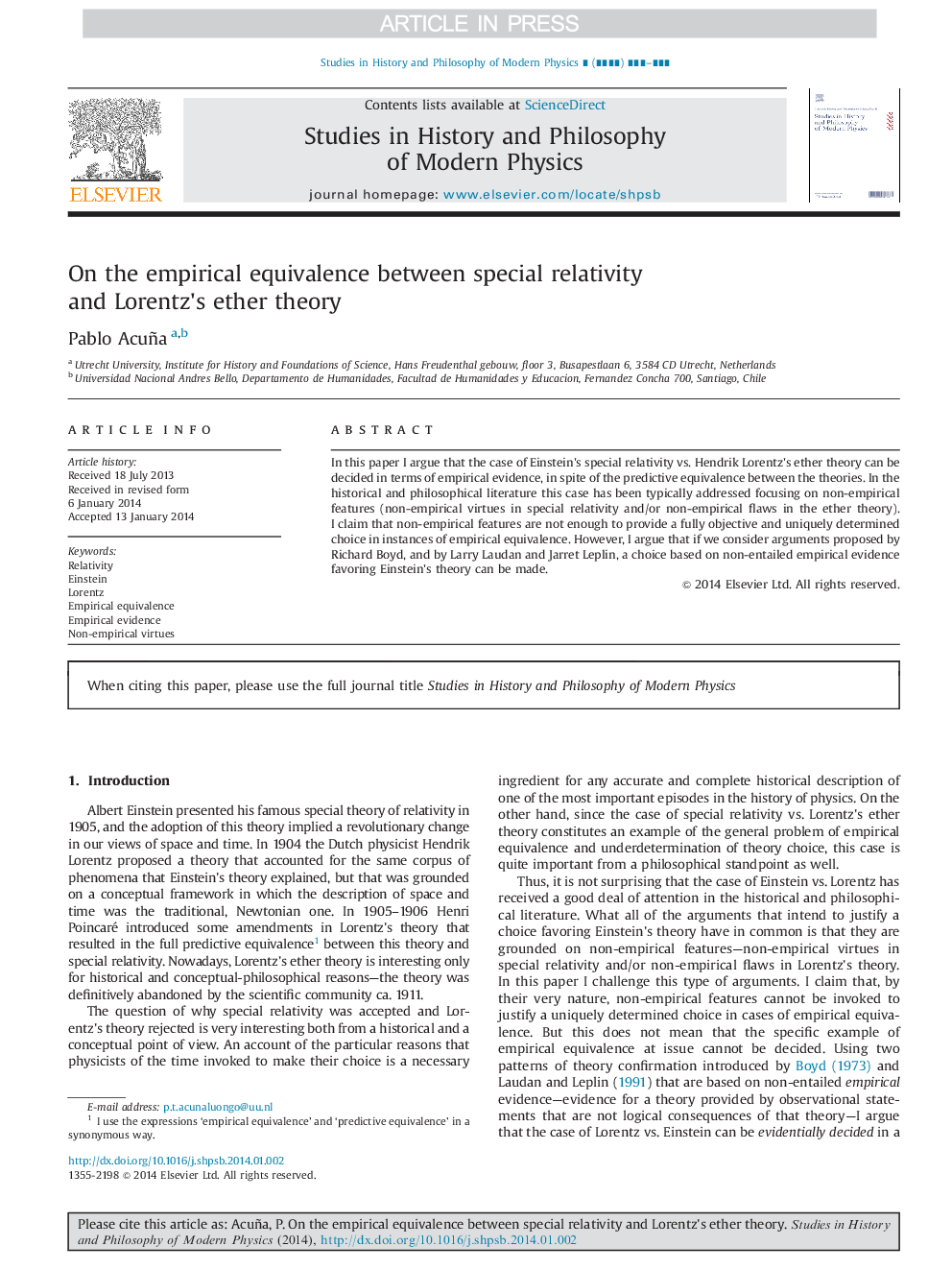| Article ID | Journal | Published Year | Pages | File Type |
|---|---|---|---|---|
| 7552019 | Studies in History and Philosophy of Science Part B: Studies in History and Philosophy of Modern Physics | 2014 | 20 Pages |
Abstract
In this paper I argue that the case of Einstein׳s special relativity vs. Hendrik Lorentz׳s ether theory can be decided in terms of empirical evidence, in spite of the predictive equivalence between the theories. In the historical and philosophical literature this case has been typically addressed focusing on non-empirical features (non-empirical virtues in special relativity and/or non-empirical flaws in the ether theory). I claim that non-empirical features are not enough to provide a fully objective and uniquely determined choice in instances of empirical equivalence. However, I argue that if we consider arguments proposed by Richard Boyd, and by Larry Laudan and Jarret Leplin, a choice based on non-entailed empirical evidence favoring Einstein׳s theory can be made.
Related Topics
Physical Sciences and Engineering
Physics and Astronomy
Physics and Astronomy (General)
Authors
Pablo Acuña,
